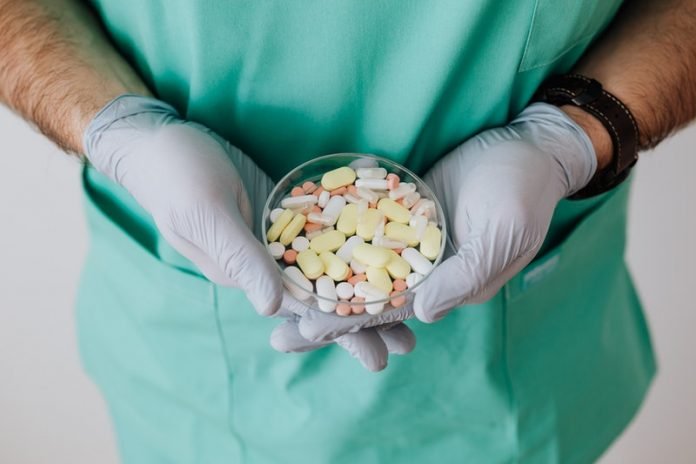
In a new study, researchers found a compound that shows promise for treating SARS-CoV-2, the virus that causes COVID-19.
They found that berzosertib was effective in blocking the coronavirus’s ability to replicate and did not cause strong harm to cells.
This study identified a new potential therapy that could help the global fight against COVID-19.
The research was conducted by scientists from UCLA and elsewhere.
Drugs are categorized as small molecules when their individual molecules are tiny enough that they can penetrate to where they are needed.
Berzosertib, which is licensed by Merck KGaA, Darmstadt, Germany, is being tested in separate clinical trials in combination with chemotherapy as a possible treatment for lung cancer, ovarian cancer and other types of tumors.
In the study, the team screened 430 drugs from among the approximately 200,000 compounds.
The scientists aimed to block the coronavirus’s ability to use cellular proteins to replicate rather than attack the virus directly because drugs that directly interfere with the virus are expected to have trouble keeping up with SARS-CoV-2’s propensity to mutate.
As a practical measure, the researchers limited their search to compounds that either had been approved or are already in the process of being evaluated, for safety in humans.
They identified 34 that showed at least some ability to halt the coronavirus, and eight that did so at relatively lower doses, before zeroing in on berzosertib as the most promising candidate.
In a series of seven experiments, the scientists tested the drugs in cultures of coronavirus-infected cells, including from organs that COVID-19 attacks, the kidney, heart and lungs.
They found berzosertib consistently stalled the coronavirus’s replication without damaging cells.
The scientists also tested the drug against the coronaviruses that cause the diseases SARS and MERS, both of which triggered deadly outbreaks earlier in the 2000s.
They found that it was effective in stopping the replication of those viruses as well.
They suggest it may be worthwhile for researchers to run clinical trials to find out whether cancer patients in particular might profit from this drug as a COVID-19 treatment.
The study is published in the journal Cell Reports. One author of the study is Robert Damoiseaux.
Copyright © 2021 Knowridge Science Report. All rights reserved.



